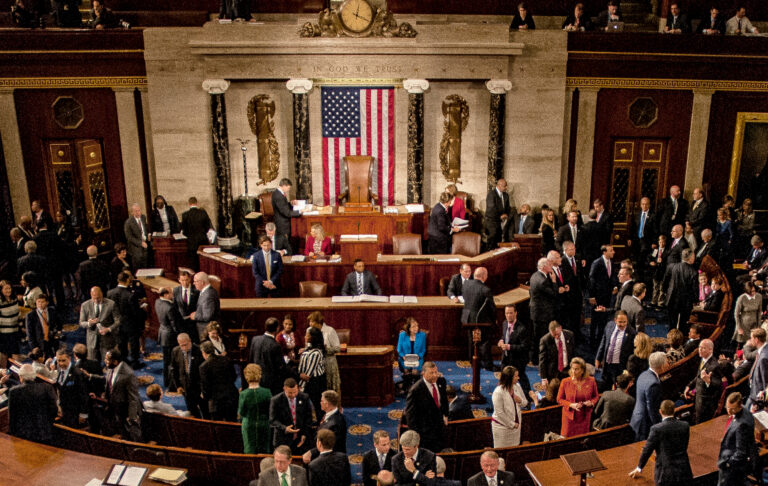The recently-introduced bipartisan legislature could give customers and lawmakers alike a bit greater than they bargained for.
The Limiting the Emergence of Safety Threats that Threat Data and Communications Know-how (RESTRICT) Act would permit the U.S. Division of Commerce the ability to assessment info and communications know-how (ICT) services utilized by People.
If an ICT product (like TikTok) with hundreds of thousands of U.S. customers (150M, particularly) is made by an entity (ByteDance) tied to a rustic labeled as a overseas adversary (China) – it could fall beneath this 55-page invoice, launched by Sen. Mark Warner (D-VA).
However What Does The RESTRICT Act Intention To Forestall?
Basically, the Act goals to cease overseas adversaries from sabotaging ICT services or products, damaging important infrastructure, interfering with Federal elections, steering U.S. insurance policies and laws for overseas profit, or posing different dangers to nationwide safety or the safety of U.S. individuals.
As for the dangers these ICT services may pose, the principle goal of the RESTRICT Act is to presumably protect important infrastructures (like telecom and power, for example) that assist nationwide protection, authorities, and the economic system from sabotage by so-called overseas adversaries.
It may shield the U.S. from dangers related to a overseas adversary accessing the content material People share publicly and “privately” with know-how that processes, shops, retrieves, or communicates info or information electronically.
However these applied sciences go far and past the likes of, say, TikTok.
They may embody dangers to:
People who use a smartphone (like an iPhone with Chinese language elements) are secured with Kaspersky (Russian ties) at hospital workstations that retailer affected person medical information.
People could have their smartphone’s microphone and cameras enabled for the Telegram messenger or Badoo courting app (utilized by hundreds of thousands and developed in Russia) whereas working at a financial institution discussing shopper monetary and credit score info.
People at organizations depend on Lenovo, an organization based in Beijing, for presidency, healthcare, and huge enterprise options that course of delicate, private info.
People who focus on authorized instances from a house workplace utilizing a TP-Hyperlink router, based in China, in a house secured with Blink cameras, assembled in China.
People with companies hosted on Amazon Net Providers or Rackspace providers in China.
What Occurs To Dangerous Know-how Underneath The RESTRICT Act?
Whereas hundreds of thousands of U.S. consumers could worry a ban on their favourite Chinese language trend app, SHEIN, that’s only one potential final result for know-how reviewed beneath the RESTRICT Act.
It’s price noting that international locations like China, Russia, and Iran block residents from utilizing Fb and Twitter based mostly on privateness issues, what’s perceived as misinformation, and nationwide safety. India blocks TikTok for comparable causes.
The U.S. Secretary of Commerce may use the Act to stress entities from sure international locations to promote holdings in know-how People use – very like different areas of the U.S. authorities attempting to get ByteDance, based in Beijing, to separate TikTok U.S. from its present Chinese language mum or dad firm.
Or, the Act may put stress on firms to replace information dealing with processes and create clear insurance policies.
TikTok’s newest commitments to security and transparency appear to not have an effect on politicians who need it banned.
Compliance with regional regulation can grow to be pricey for firms with international customers. Those that need to succeed will need to have sufficient assets to fulfill all native information legal guidelines and laws.
Bipartisan assist for the RESTRICT Act consists of 25 cosponsors, the Division of Commerce, and the White Home.
It follows different payments not too long ago launched by the Home and Senate to cease China from accessing U.S. residents’ private delicate info, spying through the Web, censoring American values, influencing American politics, or coaching algorithmic methods with People’ private information.
Whereas nationwide safety and infrastructure stability needs to be prime priorities, the language within the RESTRICT Act leaves People with issues.
What Sort Of Know-how Might Be Included Underneath The RESTRICT Act?
In contrast to its predecessors, such because the DATA Act and Averting the Nationwide Menace of Web Surveillance, Oppressive Censorship and Affect, and Algorithmic Studying by the Chinese language Communist Social gathering Act, the RESTRICT Act’s attain goes past a social media app.
It could possibly be any {hardware}, software program, product, service, or app linked to an entity abroad deemed adversarial.
That encompasses numerous actions: website hosting, content material supply networks, cloud-based storage, synthetic intelligence and machine studying, webcams, drones, desktop and cell functions, gaming, funds, ecommerce, marketplaces, managed providers, information transmission, and extra.
What Knowledge Might Be Out there To The Authorities Throughout Its Evaluation Of Overseas ICT?
Every firm has pointers in regards to the circumstances beneath which it can supply person information to regulation enforcement and authorities businesses.
TikTok outlines pointers whereas acknowledging person rights. Apple gives a 20-page doc on its course of. Blink adheres to Amazon insurance policies. Badoo manages a regulation enforcement portal.
On condition that, information made accessible to the U.S. throughout this investigation may embody info, paperwork, and studies associated to an exercise beneath investigation. The Secretary may launch info unavailable to the general public or commercially accessible if it’s of nationwide curiosity or approved by Federal regulation.
Would the federal government punish individuals who attempt to use an app banned by the RESTRICT Act by way of digital personal community (VPN) or onion providers?
In line with a Tweet from Warner:
“This invoice wouldn’t allow prison or civil penalties in opposition to anyone – no matter their age – only for utilizing a VPN to entry a banned app. This invoice is aimed squarely at companies, not customers.”
This possible means the federal government would punish the VPN providers permitting individuals to connect with the banned app.
However the wording within the RESTRICT Act’s penalties part makes use of the phrase “individual” 12 occasions earlier than itemizing civil penalties (as much as $250,000) and prison penalties (as much as $1,000,000 and/or 20 years in jail)”
“It shall be illegal for an individual to violate, try and violate, conspire to violate, or trigger a violation of any regulation, order, route, mitigation measure, prohibition, or different authorization or directive issued beneath this Act, together with any of the illegal acts described in paragraph (2).”
Individuals are outlined as residents or nationals of the U.S. or any overseas nation.
The invoice has eight illegal acts (violations), considered one of which is as follows:
“No individual could have interaction in any transaction or take some other motion with intent to evade the provisions of this Act, or any regulation, order, route, mitigation measure, prohibition, or different authorization or directive issued thereunder.”
In civil and prison instances, the USA can seize any actual or tangible property or proceeds associated to the illegal acts outlined within the Act.
Why Does All Of This Matter?
Knowledge privateness and safety issues have an effect on know-how firms on a worldwide scale.
Italy’s current ban on ChatGPT is a reminder that anybody’s favourite product may grow to be more durable and costlier to entry if a authorities company decides it’s a threat.
The RESTRICT Act is likely one of the most seen and tracked payments within the U.S.
Featured picture: mark reinstein/Shutterstock











